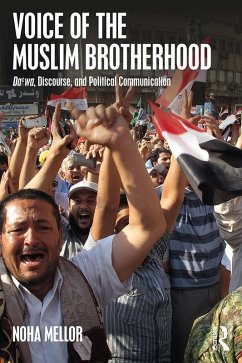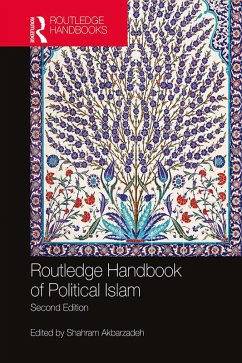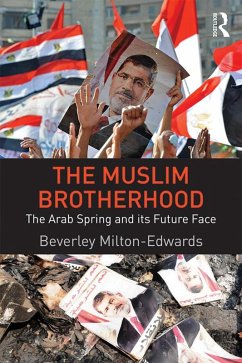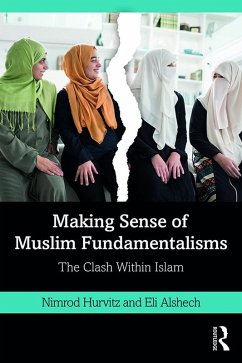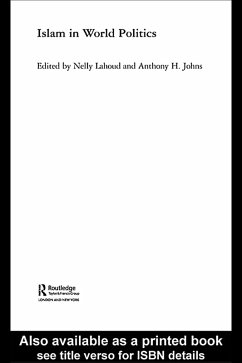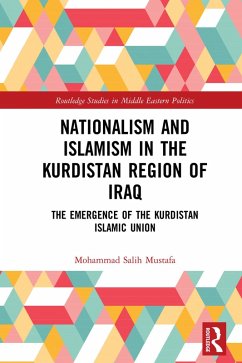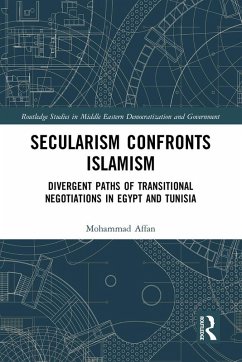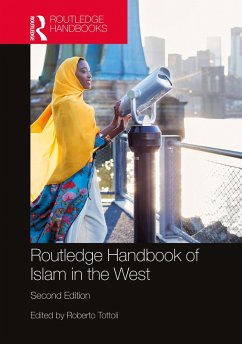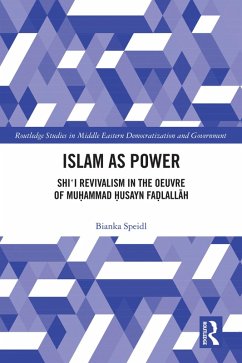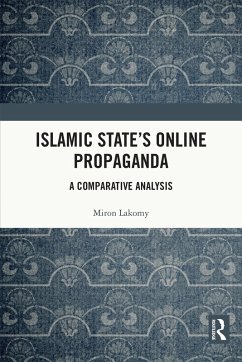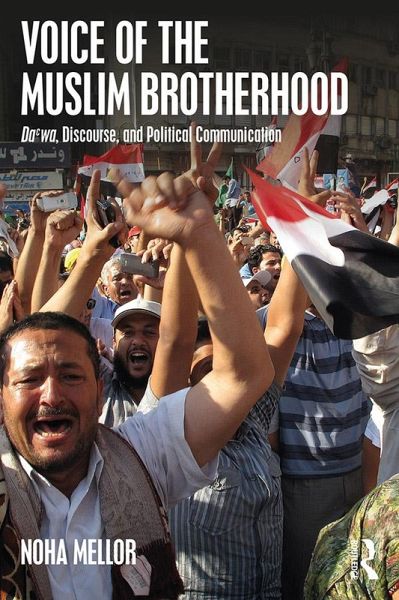
Voice of the Muslim Brotherhood (eBook, PDF)
Da'wa, Discourse, and Political Communication
Versandkostenfrei!
Sofort per Download lieferbar
42,95 €
inkl. MwSt.
Weitere Ausgaben:

PAYBACK Punkte
21 °P sammeln!
In the wake of the 25 January revolution and the coup that followed in 2013, Egyptian bookstores recorded a significant increase in demand for books by and about the Muslim Brotherhood. However, despite the burgeoning literature on the Brotherhood, knowledge about the movement is still rather limited, particularly with regard to its most strategic tool - media and communications.This book offers a fresh and close look into the communication strategy of the group, focusing on published periodicals, biographies, and websites that represent the voice of the Brotherhood. The book analyses the core...
In the wake of the 25 January revolution and the coup that followed in 2013, Egyptian bookstores recorded a significant increase in demand for books by and about the Muslim Brotherhood. However, despite the burgeoning literature on the Brotherhood, knowledge about the movement is still rather limited, particularly with regard to its most strategic tool - media and communications.
This book offers a fresh and close look into the communication strategy of the group, focusing on published periodicals, biographies, and websites that represent the voice of the Brotherhood. The book analyses the core mission of the Brotherhood, namely its da¿wa (call, invitation to faith) - how it is articulated and how it is defined by the movement as an ideology and a process. Have the media represented a coherent voice of the Brotherhood over the past decades? What can they communicate regarding the Brothers' perception of the needs of their audiences? How have the media served to sustain, preserve, and distinguish the movement for nine decades? The book argues that the Brotherhood media speak with an intermittent voice and deliver an incoherent message whose tone is changeable and fluctuating and cannot be claimed to truly represent the heterogeneity of the group.
Adopting an interdisciplinary approach that integrates Media Studies and Social Movement Theory, the book provides a fresh analysis of the Brotherhood movement as an interpretive community and will be a valuable resource for anyone studying Egypt or the Muslim Brotherhood.
This book offers a fresh and close look into the communication strategy of the group, focusing on published periodicals, biographies, and websites that represent the voice of the Brotherhood. The book analyses the core mission of the Brotherhood, namely its da¿wa (call, invitation to faith) - how it is articulated and how it is defined by the movement as an ideology and a process. Have the media represented a coherent voice of the Brotherhood over the past decades? What can they communicate regarding the Brothers' perception of the needs of their audiences? How have the media served to sustain, preserve, and distinguish the movement for nine decades? The book argues that the Brotherhood media speak with an intermittent voice and deliver an incoherent message whose tone is changeable and fluctuating and cannot be claimed to truly represent the heterogeneity of the group.
Adopting an interdisciplinary approach that integrates Media Studies and Social Movement Theory, the book provides a fresh analysis of the Brotherhood movement as an interpretive community and will be a valuable resource for anyone studying Egypt or the Muslim Brotherhood.
Dieser Download kann aus rechtlichen Gründen nur mit Rechnungsadresse in A, B, BG, CY, CZ, D, DK, EW, E, FIN, F, GR, HR, H, IRL, I, LT, L, LR, M, NL, PL, P, R, S, SLO, SK ausgeliefert werden.




